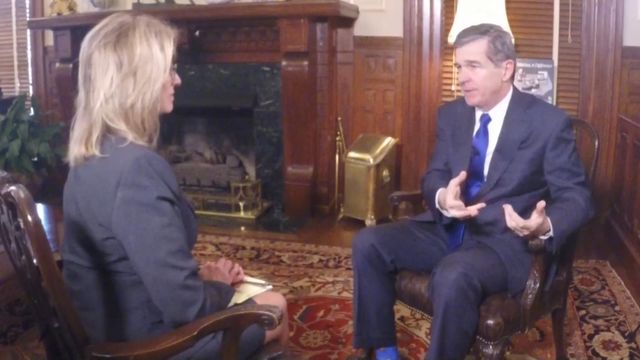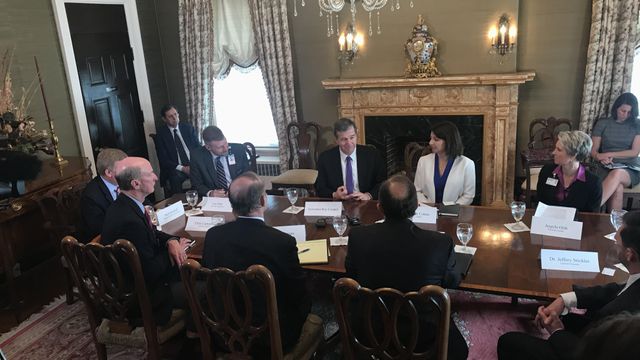Budget deadlock over Medicaid likely as deadline looms
As the June 30 budget deadline approaches, neither Democratic Gov. Roy Cooper nor Republican legislative leaders appear to be softening their opposing positions on Medicaid expansion.
Posted — UpdatedWhile Senate President Pro Tem Phil Berger has long been blunt in his opposition to Medicaid expansion, House Speaker Tim Moore has generally taken a more nuanced approach. But this week, in his strongest language to date, Moore said the joint House and Senate budget deal due next week will not expand Medicaid.
"We’re not going to do it," Moore, R-Cleveland, told reporters Thursday. "I’m not going to commit the state of North Carolina to potentially billions of dollars of additional debt for expansion of an entitlement program that, under what’s being asked for by the governor, would only benefit those who are able-bodied but are refusing to work."
Asked what he would say to low-income people who can't afford health insurance, Moore answered, "I’d say the best thing that folks could do is to get a job. North Carolina now has the best economy it’s had in decades, and if you want a job in North Carolina now, you can get a job."
In an exclusive interview with WRAL News, Cooper said most of those who would be covered by Medicaid expansion are already working. But low-wage service jobs rarely come with health coverage, and in many rural areas, those are virtually the only jobs available for many people.
"I think about that working person who oftentimes might have two jobs. Neither one of the employers can afford to provide that employee health insurance, and he or she is trying to support a family, and right now, they make too much to qualify for Medicaid," Cooper said. "[Medicaid expansion] allows them to keep working and have health insurance. It’s a win-win all the way around. That’s why we need to do this in North Carolina."
Cooper estimated that North Carolina has passed up about $20 billion in federal aid since declining to expand Medicaid under the Affordable Care Act. He said expansion could create more than 40,000 jobs in the state and help struggling rural hospitals keep their doors open.
"Hospitals support it. Medical providers support it. Business communities support it. Law enforcement officers support it. Chambers of commerce across this state support it," he said. "But I keep hearing from the Republican leadership that ‘We have problems with it.’ Yet, the excuses that they give have all been proven demonstrably false, because we have 37 other states that have done this for a few years, and now we see how it’s working."
"For the governor or for anyone to take a stand that they’re going to just be against the bill because they disagree with simply one point is just simply irresponsible," Moore said. "We cannot – we will not – vote to expand the Medicaid population. We won’t do it. But we’re glad to talk about other things. This is a $24 billion budget. There’s a lot more at issue than Medicaid."
"Medicaid expansion needs to be part of the negotiations," Cooper told WRAL News. "I’m not an ultimatums-type person. but what I’m hearing from them right now is that they don’t even want Medicaid expansion to be part of the negotiations."
If Democratic lawmakers unify to sustain a potential veto, they could block the Republican budget plan indefinitely. Cooper and House Democratic leadership say the caucuses are "very solid on this issue."
Moore is optimistic that that could change. He would need to win over seven Democrats to override a veto in the House.
"If they realize that their districts are being negatively impacted by the failure of us to pass a budget," Moore said, "[I would hope] that they would exercise their independence as an elected official, even if they’re in the same party with the governor, to disagree with him and to vote to override the veto."
Moore and Berger, R-Rockingham, said in a joint news release Friday afternoon that they offered Cooper a special budget provision that would "convene a special session to address health access issues, including Medicaid expansion."
"The Governor previously proposed a ‘two-track’ solution and wants Medicaid to be ‘part of the conversation,'" the statement reads. "This meets both of those requests. The Governor rejected the proposal."
• Credits
Copyright 2024 by Capitol Broadcasting Company. All rights reserved. This material may not be published, broadcast, rewritten or redistributed.






